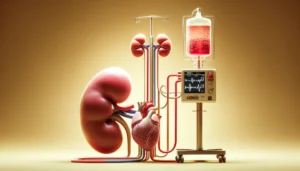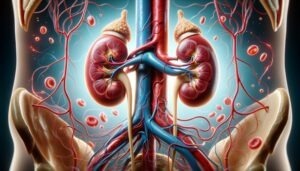
Long-Term Clinical Outcomes of Acute Kidney Disease in Patients Receiving Extracorporeal Membrane Oxygenation
This study investigates the long-term outcomes of acute kidney disease (AKD) in patients undergoing extracorporeal membrane oxygenation (ECMO). From a dataset of 395 patients, 40.5% developed AKD. Those with AKD had a higher risk of major adverse kidney events (MAKEs) and cardiovascular events (MACEs). The risk of readmissions due to infections or sepsis was also elevated in AKD survivors, emphasizing the long-term impact of AKD in ECMO patients.









